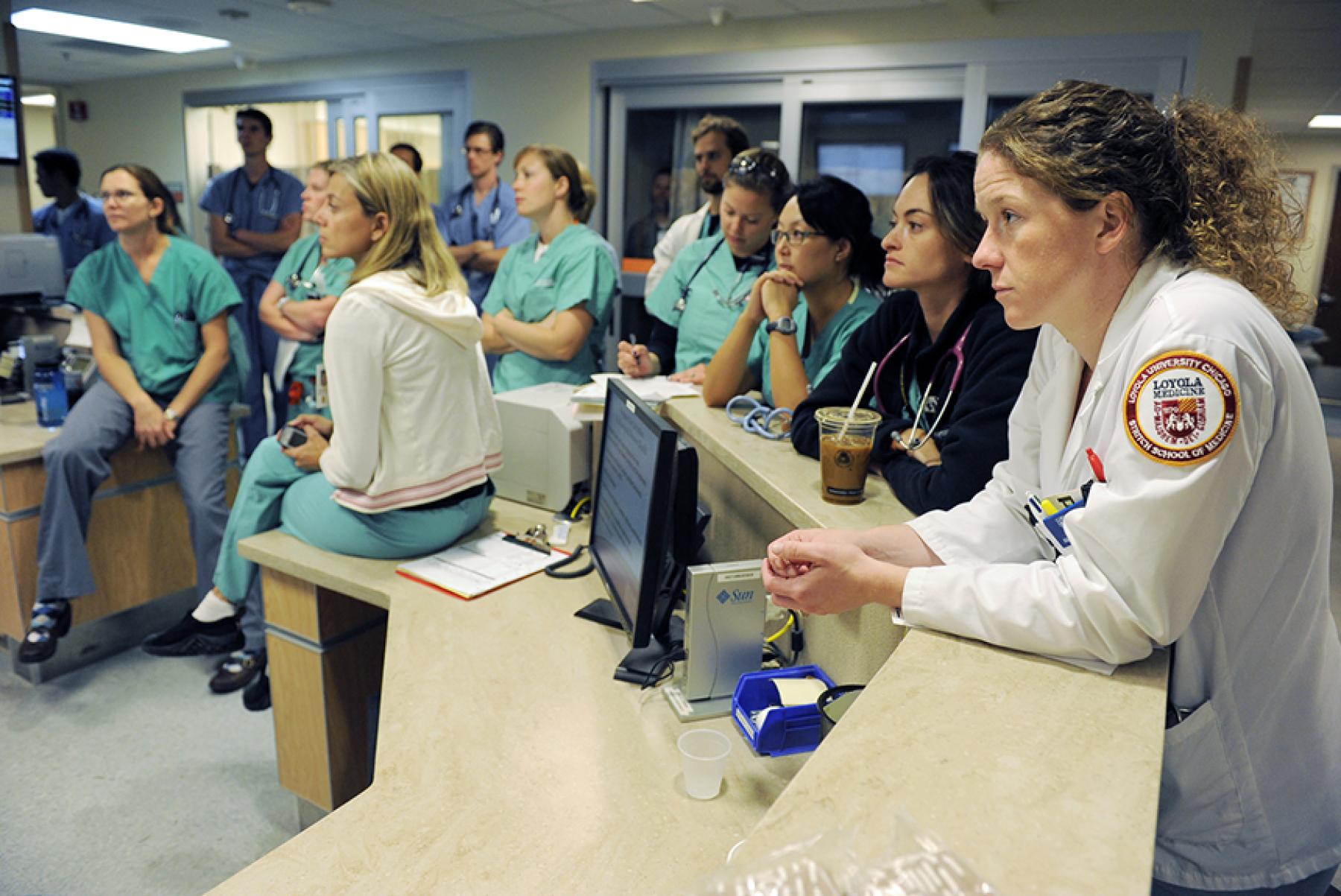Should We Be Celebrating More Health Care Jobs?

Give a big hand to Colorado. Our state now boasts the lowest unemployment rate in the nation at 2.6 percent, well below the national average of 4.5 percent. The 40,000 new health care jobs added here since 2008, an impressive 28 percent increase, have played an important role in this achievement.
You don’t have to be an economist to understand that we like to see job growth numbers like these. More jobs mean more income for workers and businesses, which means more spending and investment, which means more income for workers and businesses. A virtuous cycle.
But when it comes to job growth in the health care sector, the economic optimism is misplaced, argues Chad Terhune, a senior correspondent for Kaiser Health News.
Writing in last Sunday’s New York Times, he characterized the growth in health care sector jobs – nationally, they have increased by 19 percent since 2008, while jobs outside of health care grew by about 4 percent - as a “costly addiction.”
“The country has grown increasingly dependent on the health care sector to power the economy,” he wrote.
We don’t ordinarily lament the growth of jobs in other sectors such as high tech, which like health care jobs often pay middle-class wages (and higher). What’s wrong with having job growth in health care?
The downside is that a large proportion of the health care jobs aren’t directly providing health care, Terhune says. Instead, for every doctor, there are 16 other health care workers. And half of those 16 are in administrative and other nonclinical roles.
And that’s the crux of his argument. He says that administrative costs are pushing up health care costs without necessarily leading to better health.
Katherine Baicker, a Harvard health economist, agrees. The sharp increase in health care jobs “is incompatible with the goal of keeping health care affordable,” she says in Terhune’s piece. “There’s a lot of evidence we can get more bang for our buck in health care.”
I think there are at least two reasons for why our health care system doesn’t tend to get enough bang for the buck and why it’s different from other sectors of our economy.
First, our health care system is enormously complex. A visit to the doctor sets in motion a tangled process: Which insurance company and plan covers the patient? How much will the doctor get reimbursed? What services won’t be covered? What forms need to be filled out to ensure reimbursement? How much is the co-pay or deductible? How will data about the visit be entered into medical records and how do different computer systems interact with each other? The list goes on.
It’s not surprising that there are a lot of non-clinical jobs in health care.
Second, our health care system is unlike any other economic enterprise in the country. The “invisible hand” or the “discipline of the market” tends to push companies and consumers to efficient outcomes. Waste is minimized and we get the most bang out of every buck, at least in theory.
There are plenty of times when this economic theory isn’t realized in practice, but the health care market is particularly dysfunctional.
For example, patients typically don’t have information and expertise to make decisions that affect the health care they receive. (Is this particular drug the right one I should be taking?) In addition, health care decisions are made without knowing what the costs are, and those costs often are being paid by someone else. (If my health insurance is going to cover this procedure, I might as well get it.)
In health care, decisions are often disconnected from the ability to weigh costs and benefits, which is what allows markets to work. This sets health care apart from many other sectors of our economy.
From my perspective, growth in the number of health care jobs is not necessarily a good thing or a bad thing.
In Colorado, the large drop in the percentage of people who are uninsured has led to a growing demand for health care industry workers. If that improves the health of Coloradans, that’s a good thing.
But we also have to ask ourselves whether we are doing everything we can to deliver that health care as efficiently as possible.

Source: Kaiser Health News
